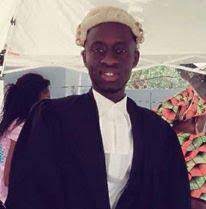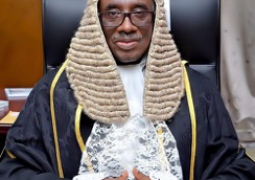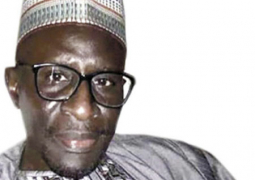
In his judgement, he said that on the 8th of November, 2021, the accused pleaded not guilty to the offence of breaking into a building contrary to section 283(a) of the Criminal Code and stealing contrary to section 252 of the same code. He further posited that the particulars of offence on count one were to the effect that the accused broke and entered into the shop of one Momodou Alieu Jallow with intent to commit a felony to wit: stealing.
He adduced that count two alleged that the accused stole from the shop of Momodou Alieu Jallow the following items: cash of D50, 000, one mobile phone marked Techno Spark 4 valued at D5, 500, one Itel simple phone valued at D400, one Bluetooth Speaker valued at D1000 and one Itel smart phone valued at D2, 500, all being the property of Mr. Jallow.
The presiding magistrate went on to say that the prosecution called three witnesses and the accused testified and after his evidence, he called a witness.
“Now the issue which requires for determination is whether the prosecution has proven its case against the accused to warrant a conviction,” he stated.
He further stated that the law in this jurisdiction is that a person charged with an offence is presumed innocent until proven guilty and declared as such by a court of competent jurisdiction. He posited that the burden of proving the guilt of the accused is on the person who alleges that he has committed the offence
“The standard required from the prosecution in proving the guilt of the accused is proved beyond reasonable doubt,” he told the court.
He said it was the evidence of PW1, Momodou Alieu Jallow, that he was in his shop sleeping when he realised the presence of people in his shop. He posited that the complainant caught the accused and the others ran away. The complainant had a push and pull with the accused until he escaped, and his wife woke up and also recognised the accused. He said the accused denied any responsibility.
“It was the testimony of PW1 that one of the shoes recovered at the scene belonged to the accused. This said shoe was not tendered in evidence. The only thing tendered before the court was a photo of two shoes and a cap. The said shoes and cap were never brought before the court and there was no reason for not doing so. In fact, which one of the two shoes belonged to the accused from the photo? This remains unknown,” he said.
The presiding magistrate believed that if the shoes of the accused were recovered at the scene, they would have been tendered in court.
He went on to say that PW1 said that there was a lady who also recognised the said shoes to be that of the accused.
“The said lady was never called as witness. Hearsay is not admissible in criminal matters, and an evidence that is wrongfully admitted during trial can be disregarded by a court during judgement,” he asserted.
He further stated that it is time for our arresting officers to line up to the task that criminal cases require strict proof when an accused denied culpability.
“If really the said shoes belonged to the accused and finger print lifting was conducted on them, they could be connected to the accused, if he actually owned the shoes,” he posited.
He said that no such thing was done. He adduced that he could not believe in the testimony of the prosecution witnesses without any further proof.





